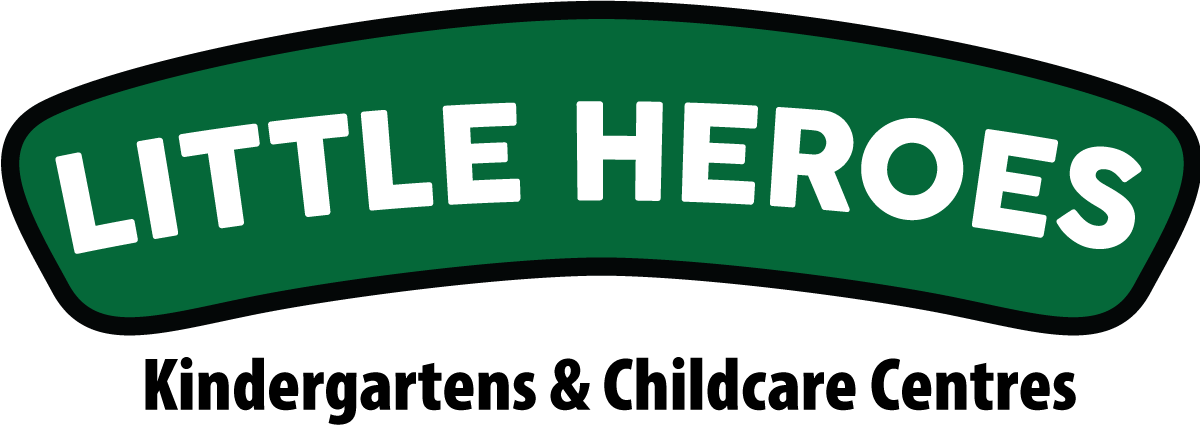Little Heroes Preschool Framework

The Little Heroes Framework
The Little Heroes Framework is based on the key idea behind the research work carried out by Johann Heinrich Pestalozzi (1746 to 1827) that the purpose of education is to develop the ‘head, heart and hands’ which encompasses the intellectual, social-emotional and physical development of the children.
The core of the Little Heroes Framework is servant leadership. The framework consists of layered-rings that support the core. The inner rings are supported by the larger outer rings.
Values
The first inner ring is the set of values to be taught and instilled throughout the preschool years. According to Neil Hawkes (2013), “values education can be seen to be a pedagogical imperative for student wellbeing.”
There are 25 values central to the core of servant leadership as exemplified by one of the world’s greatest personalities, Prophet Muhammad (peace be upon him):
1. Ability
2. Bravery
3. Calmness
4. Dependability (reliable, loyal, steadfast)
5. Exemplariness
6. Fairness
7. Genuineness
8. Honesty
9. Initiative
10. Judgement
11. Knowledge
12. Liberalism (tolerant, open-minded)
13. Modesty
14. Nobility (dignity, graciousness, decency, goodness)
15. Organization
16. Personality
17. Quality
18. Responsibility
19. Sacrifice
20. Teamwork
21. Understanding
22. Versatility (easy to adapt to new situations/conditions, resourceful)
23. Wisdom
24. Youthful
25. Zeal (full of passion, fervour, eagerness)
Multidisciplinary Integrated Learning
Learning at Little Heroes Preschool will be multidisciplinary, and the learning of these various domains of knowledge are integrated to provide interdisciplinary approach to preschool education. This is the key idea behind the 1991 study by the researchers Renate Nummela Caine and Geoffrey Caine that the brain seeks patterns and apparently resists information that is fragmented, personally meaningless and presented in isolation.
Holistic Globalised Curriculum
The curriculum will reflect a balanced and all-rounded preschool education based on John Dewey’s key idea that young people do not think in subjects and their learning is holistic in nature (1959).
Progressive Learning Environment
The theory behind the designs for the learning environment that is progressive is based on the most fundamental guideline of “design for flexibility”. Since no one can predict how educational technologies and teaching modalities will evolve, learning spaces must adapt to whatever changes the future may hold. To achieve this flexibility, the preschool will consist of “learning studios” with moveable furniture and walls that can easily be reconfigured for different class sizes and subjects.
Community
At the outermost and largest ring of the framework is the community. Our vision is to nurture every child into a servant leader, contributing back to the community, as equally as the community becomes part of their learning endeavours in the preschool. This is backed by the studies that indicate the effects of preschool education are stronger if educators engage families and community partners in activities to promote children’s reading, math, and social readiness (Fantuzzi, et. al., 2004; Powell, et al., 2010).
Strategic Thrusts to Support the Little Heroes Framework
The four key strategic thrusts to support the Little Heroes Framework are:
1. Technology as an Enabler
2. Teachers as Facilitators
3. Community and Global Awareness
4. Holistic Curriculum with research-based pedagogies
Preschool Environment that Supports the Curriculum
Our society is characterised by rapid technological development, increasing cultural diversity and changing family and institutional structures. Changes in the nature of work, the growing interdependence of world communities, global environmental issues and social, political and economic conditions will continue to pose challenges and offer opportunities throughout the 21st century. The curriculum needs to reflect contemporary thinking about what students need to learn in order to lead successful and rewarding lives in the 21st and how the preschool and teachers can best help them to learn.
It is important that during this time they develop the tools to deal effectively with the opportunities and challenges which they encounter, both now, as young people, and in the future, as adults.The environment is considered the ‘third teacher’ in the world of Reggio Emilio. A welcoming environment will encourage a child to be engaged in purposeful activity and discovery. Common and individual spaces should be carefully created to allow opportunities of playful encounters.
For more information, please visit our website: https://www.littleheroespreschool.com

